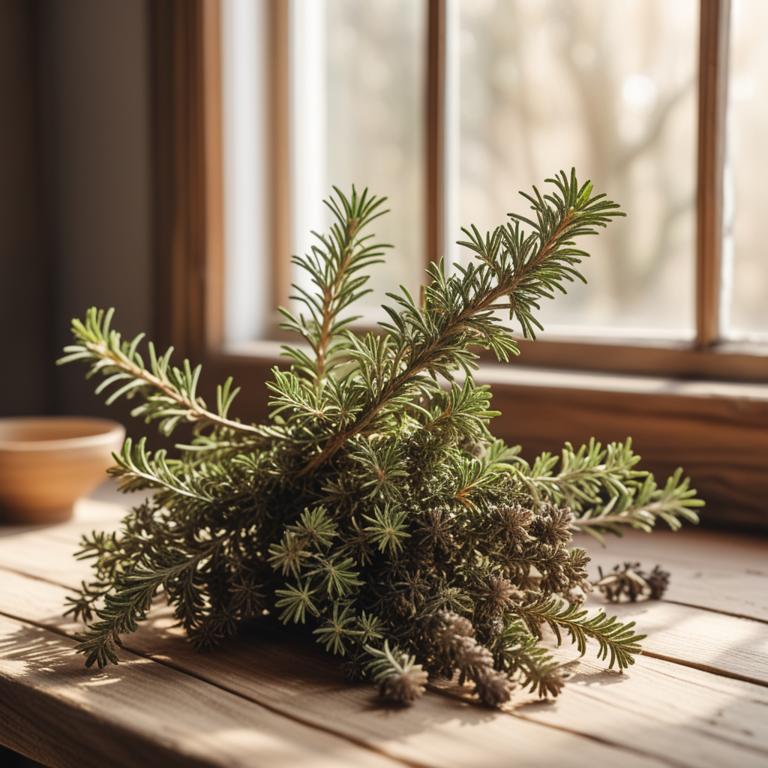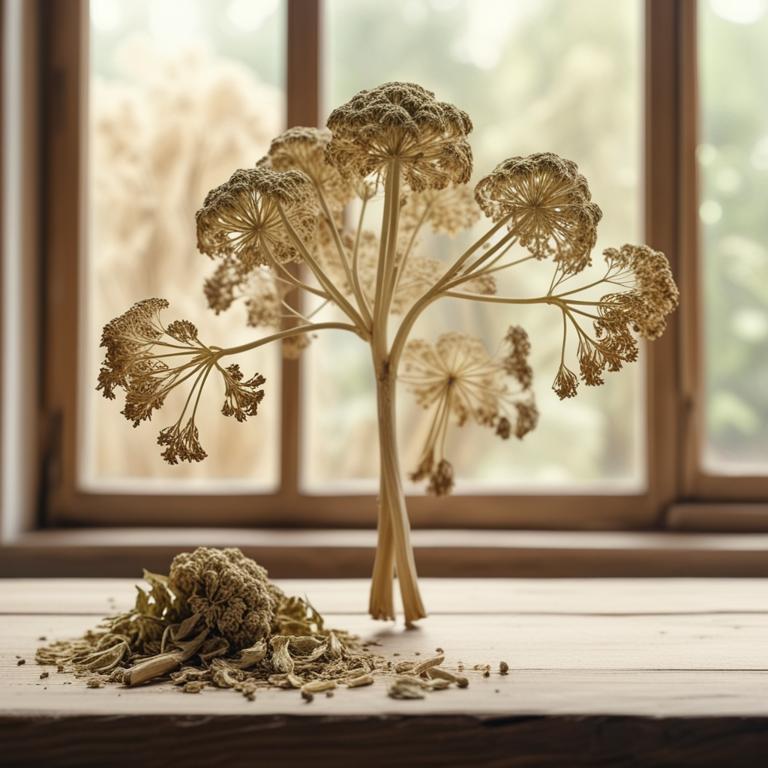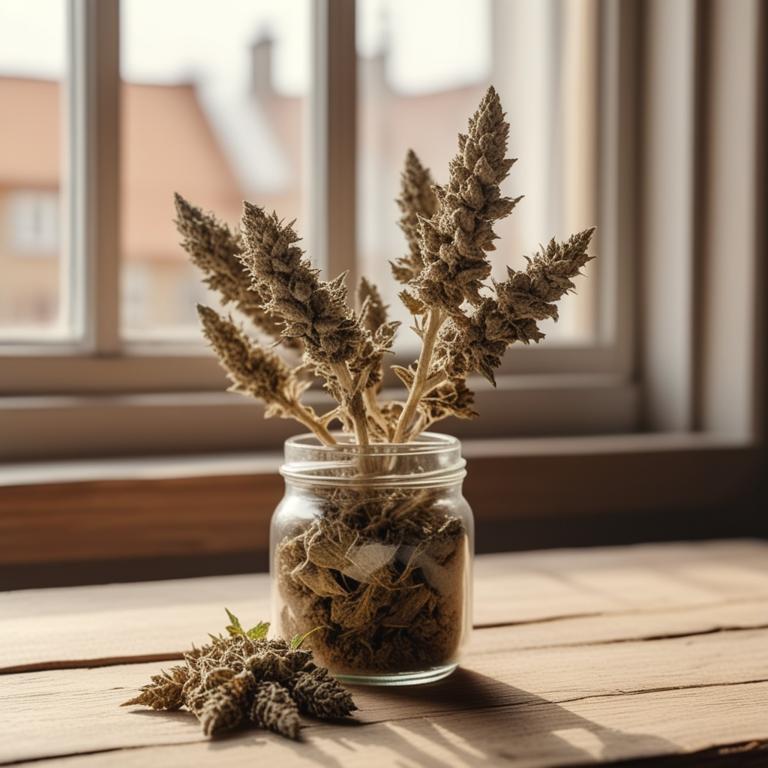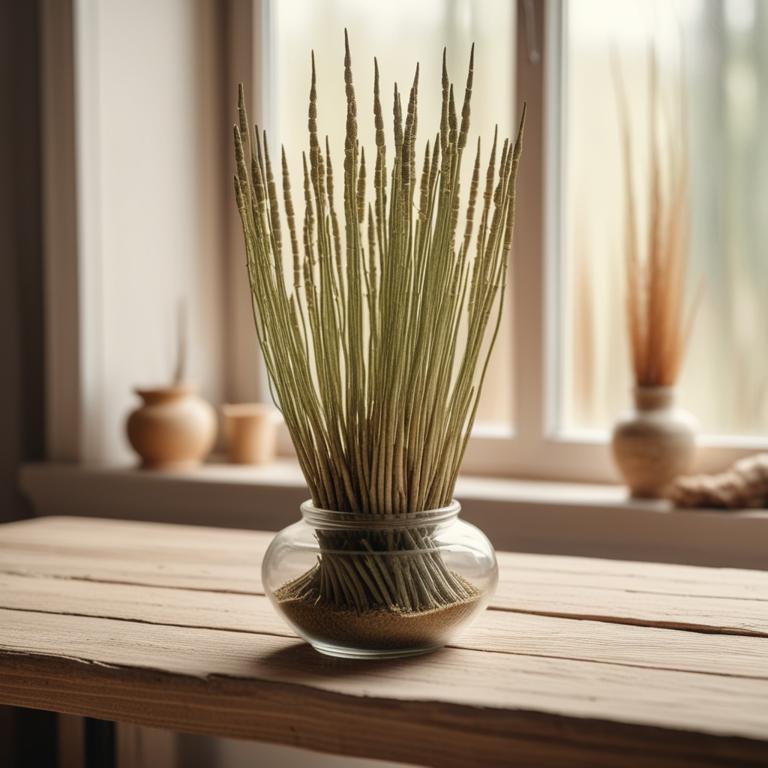Updated: Dec 1, 2024
Urinary Calculus: Natural Causes, Herbal Remedies, and Prevention
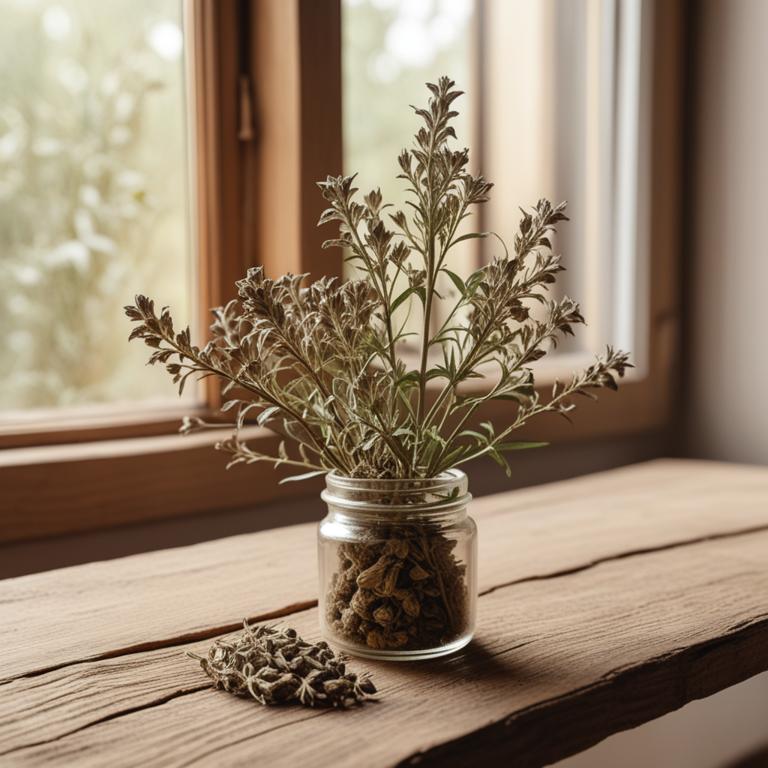
Urinary calculus, or kidney stones, is a painful and potentially debilitating condition that affects millions of people worldwide.
It occurs when minerals and salts in the urine form hard, pebble-like deposits that can cause severe pain, bleeding, and even kidney damage. The causes of urinary calculus are often linked to dehydration, a diet high in animal protein and salt, and certain medical conditions such as kidney disease or gout. Fortunately, nature has provided us with some effective remedies to help prevent and alleviate the symptoms of urinary calculus. Herbs like juniper berries, uva ursi, and parsley root have been used for centuries to treat urinary issues. These herbs contain compounds that help to reduce inflammation, eliminate toxins, and promote the passage of stones.
To use these herbs, you can try drinking juniper berry tea, which can be made by steeping the berries in hot water. Uva ursi tea, made from the leaves of the uva ursi plant, can also be used to help prevent urinary infections. Meanwhile, parsley root tea, made by steeping the root in hot water, can help to reduce inflammation and promote the elimination of toxins. In addition to drinking herbal teas, you can also try using herbal infusions or tinctures to help alleviate the symptoms of urinary calculus. For example, a juniper berry infusion can be added to bath water to help reduce inflammation and promote relaxation. Alternatively, a uva ursi tincture can be taken orally to help prevent urinary infections and promote the passage of stones.
Whatever method you choose, it's essential to consult with a healthcare professional before using any herbal remedies, especially if you have a pre-existing medical condition or are taking medications.
Table of Contents
- What are the main causes of urinary calculus?
- What are the benefits of using plant-based remedies for urinary calculus?
- What are the primary herbal treatments for urinary calculus?
- What are the herbal treatments that are most commonly used for urinary calculus?
- What herbs can worsen urinary calculus?
- FAQ
What are the main causes of urinary calculus?
The main causes of urinary calculus are related to the way our body processes and stores waste.
One cause is Hyperparathyroidism, a condition where the parathyroid glands produce too much parathyroid hormone, which can increase calcium levels in the blood. This excess calcium can then be excreted in the urine and eventually form stones. Another cause is Gout, a type of arthritis that occurs when uric acid builds up in the blood. When uric acid levels are high, it can crystallize and form stones in the urinary tract. Medullary sponge kidney is a rare condition where small, saclike cysts form in the kidneys and can trap mineral-rich urine, leading to stone formation.
Kidney stones themselves can also be a cause of urinary calculus. If a stone forms in one of the kidneys, it can break apart and travel down the urinary tract, where it can get stuck and cause a blockage. Urinary tract infections (UTIs) can also contribute to stone formation. When bacteria infect the urinary tract, they can cause inflammation and irritation, which can lead to the formation of stones. Finally, obesity is a risk factor for developing urinary calculus.
Being overweight or obese can increase the risk of developing conditions like hyperparathyroidism and gout, as well as reducing the effectiveness of the kidneys in removing waste from the body, making it more likely for stones to form.
What are the benefits of using plant-based remedies for urinary calculus?
Using herbs for urinary calculus can be a natural and effective way to manage the condition.
These herbs have been shown to help dissolve and remove kidney stones by increasing urine production and improving its quality. They can also reduce inflammation and ease pain associated with the condition. Some herbs may help break down the stones into smaller pieces, making it easier for them to pass out of the body.
Others may help prevent new stones from forming by reducing the concentration of minerals in the urine. Additionally, some herbs have anti-inflammatory properties, which can help reduce swelling and discomfort in the affected area. They can also help improve overall urinary function and reduce the risk of complications.
Regular use of these herbs may also help prevent recurrent episodes of urinary calculus.
What are the primary herbal treatments for urinary calculus?
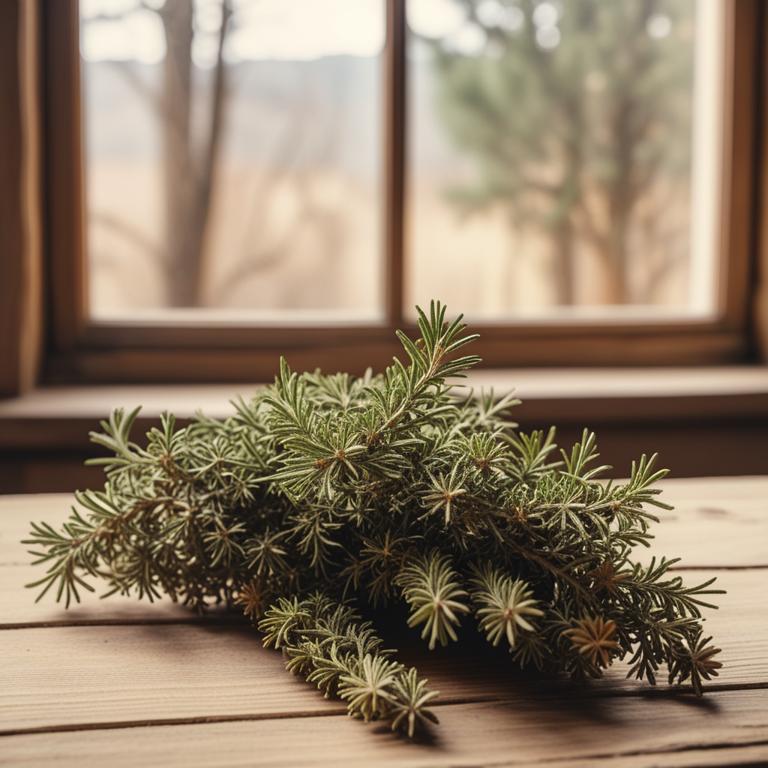
When it comes to urinary calculus, or kidney stones, certain herbs can help.
One of these is Juniperus communis, also known as common juniper. Its berries have been traditionally used to help flush out stones from the kidneys and urinary tract. This is because juniper berries have diuretic properties, which increase urine production and help move stones out of the body. Another herb that's often used for urinary calculus is Berberis vulgaris, or European barberry. Its roots contain berberine, a compound that has anti-inflammatory properties and can help reduce pain and inflammation associated with kidney stones. Berberine can also help prevent the formation of new stones by reducing the amount of minerals that crystallize in the urine. Hydrangea arborescens, or smooth hydrangea, is another herb that's been used for urinary problems.
Its roots contain tannins, which can help reduce inflammation and prevent the formation of new stones. Tannins can also help dissolve existing stones by breaking down the minerals that make them up. Tribulus terrestris, or puncture vine, is sometimes used to help prevent the formation of kidney stones. Its fruit contains compounds that can help improve kidney function and reduce the risk of stone formation. This is because Tribulus terrestris can help increase the amount of urine produced and reduce the concentration of minerals in the urine. Finally, Vaccinium myrtillus, or bilberry, is often used to help reduce inflammation and pain associated with kidney stones. Its fruit contains anthocyanins, which are powerful antioxidants that can help reduce inflammation and prevent the formation of new stones. These herbs are often used together or individually to help manage urinary calculus.
They can be consumed as teas, tinctures, or supplements, but it's essential to consult with a healthcare professional before using them, especially if you have a severe case of kidney stones or other underlying health conditions.
What are the herbal treatments that are most commonly used for urinary calculus?

Herbal preparations can be a helpful alternative for treating urinary calculus, which is a painful and common condition where stones form in the urinary tract.
A decoction is a strong liquid made by boiling herbs in water, which can help break down and flush out stones with its high water content. For example, uva ursi and juniper berries can be decocted to help reduce inflammation and kill bacteria that can contribute to stone formation. A tincture is a concentrated liquid extract of herbs, often used in small doses. Tinctures of herbs like corn silk and couch grass can help soothe and calm the urinary tract, reducing the risk of stone formation and alleviating symptoms like pain and discomfort. An infusion is a mild tea made by steeping herbs in hot water.
Infusions of herbs like parsley and dandelion can help flush out stones by increasing urine production and reducing inflammation in the urinary tract. Herbal capsules are a convenient way to take herbs internally. Capsules of herbs like stinging nettle and buchu can help reduce inflammation and kill bacteria that can contribute to stone formation. Suppositories are solid preparations inserted into the rectum to deliver herbs directly to the urinary tract. Suppositories of herbs like saw palmetto and marshmallow root can help soothe and calm the urinary tract, reducing inflammation and alleviating symptoms like pain and discomfort.
These herbal preparations can be a helpful addition to conventional treatments for urinary calculus, but it's essential to consult with a healthcare professional before using any herbal remedies, especially if you have a severe or chronic condition.
Additional Resources:
What herbs can worsen urinary calculus?
If you have urinary calculus, which are hard stones in your kidneys or bladder, it's best to steer clear of certain herbs that might make things worse.
Cinchona officinalis, for example, contains a compound that can increase uric acid levels in the body, which can contribute to the formation of these painful stones. Glycyrrhiza glabra, also known as licorice root, can raise blood pressure and reduce the amount of water in the body, both of which can make it harder for your kidneys to flush out stones.
Ephedra sinica, or Ma Huang, has been known to increase urine acidity, which can be problematic for people with existing kidney stones. Aristolochia clematitis contains a compound that can damage the kidneys and make it harder for them to function properly, which can increase the risk of new stones forming.
Astragalus membranaceus may seem like a harmless herb, but it can also raise blood pressure and reduce the body's ability to filter waste, both of which can exacerbate urinary calculus.
FAQ
Are there any specific herbs that can prevent urinary calculus?
Certain herbs, like juniper berries and parsley, have been traditionally used to help prevent urinary stones.
Juniper berries may help reduce the acidity in urine, while parsley is rich in a compound called apium that can help dissolve calcium oxalate stones.
These herbs may be beneficial in preventing stone formation.
Is it safe to use herbal remedies for urinary calculus during pregnancy?
During pregnancy, it's generally recommended to avoid using herbal remedies for urinary calculus.
Some herbs may stimulate the kidneys and worsen the condition, causing more harm than good.
If you're experiencing kidney stones, your best option is to stick with safe and proven treatments, such as drinking plenty of water and following a balanced diet.
Are there any herbs that can reduce the frequency of urinary calculus?
Research suggests that certain herbs, such as juniper berries and dandelion root, may help reduce the frequency of urinary calculi (kidney stones).
These herbs are believed to aid in flushing out minerals that can contribute to stone formation.
By promoting a healthy kidney function and reducing inflammation, they may help prevent the recurrence of kidney stones.
Related Articles
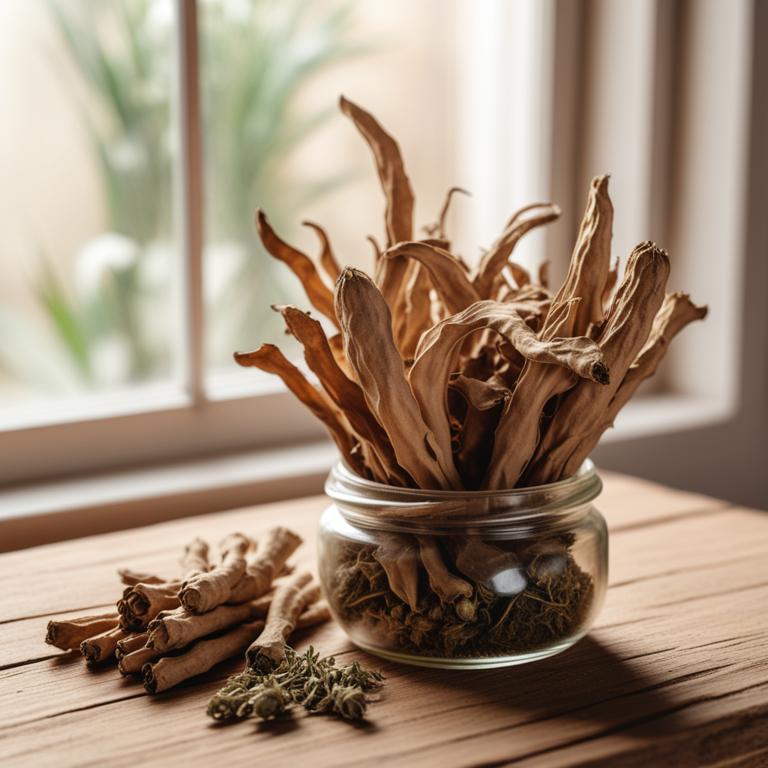
Benign Prostatic Hypertrophy: Understanding Causes and Herbal Preparations for Relief
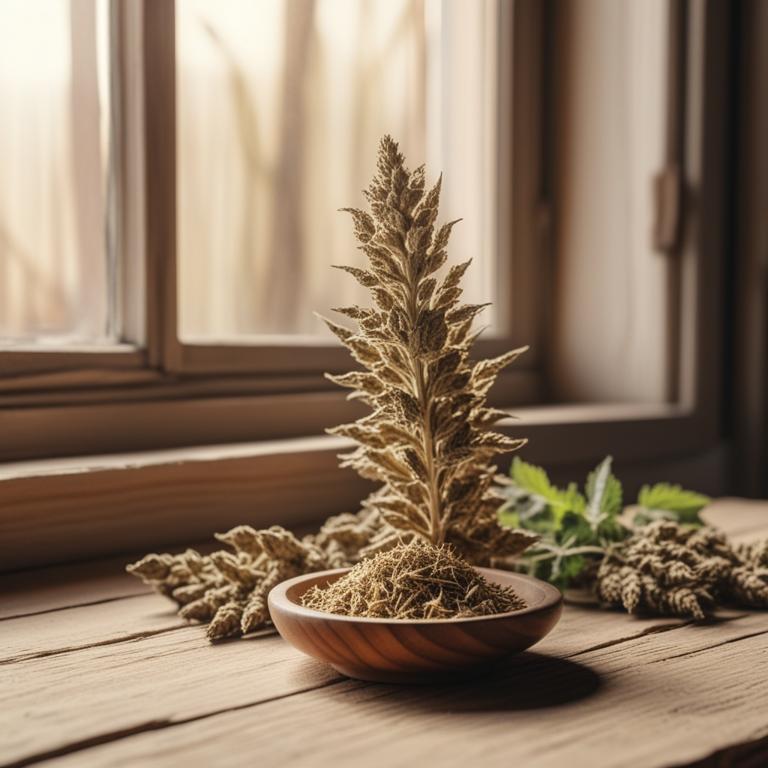
Prostate Inflammation: Understanding Causes and Exploring Medicinal Herbal Options
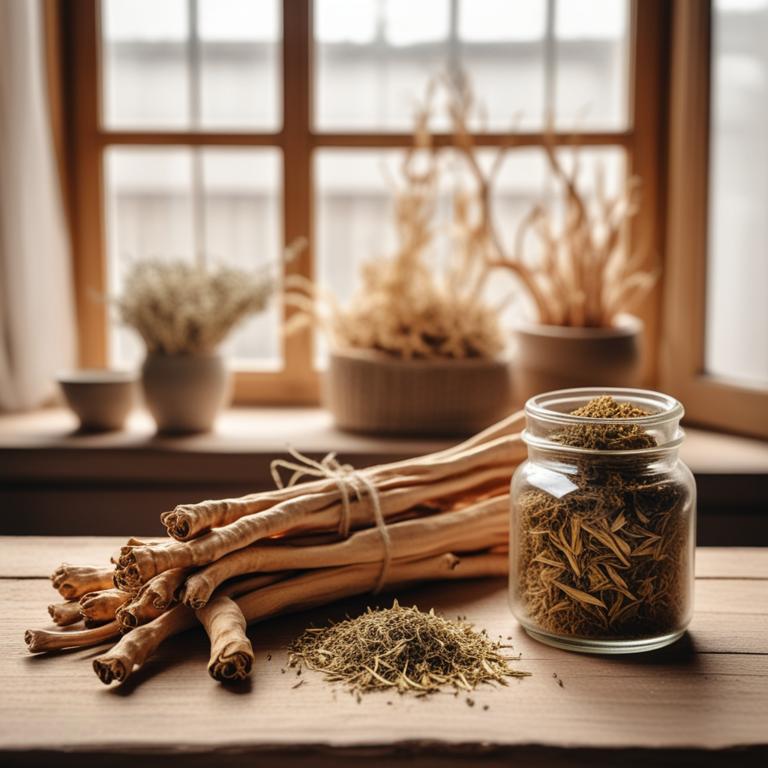
Prostatitis: Understanding the Causes and Using Herbal Preparations for Relief
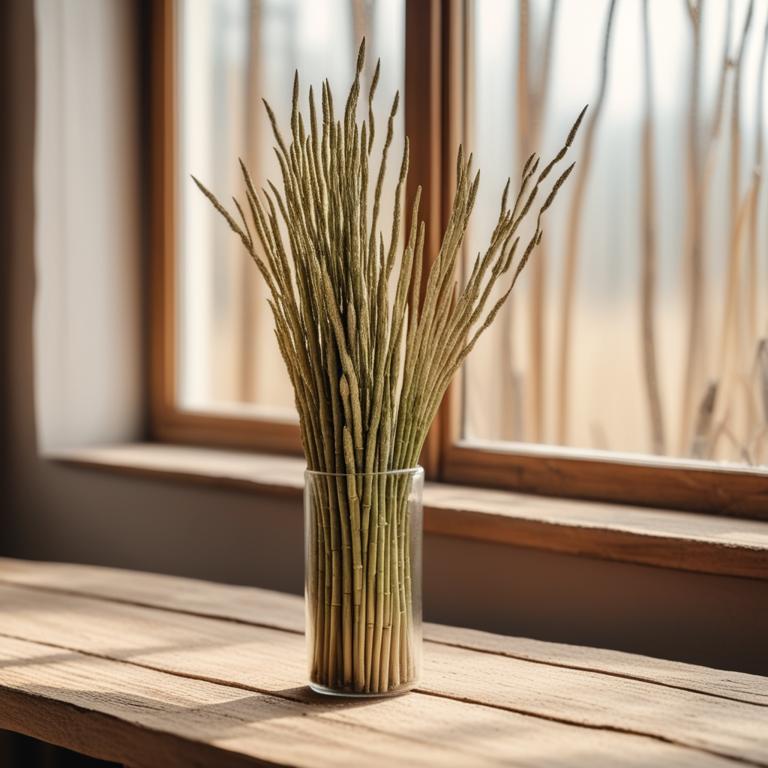
Hematuria: Exploring the Causes and Effective Herbal Remedies for Relief
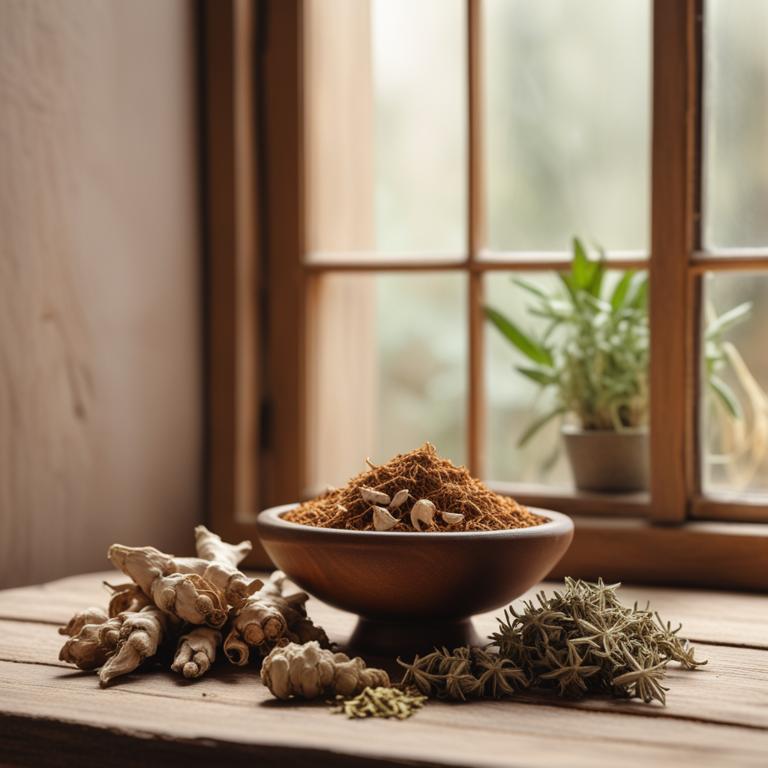
Natural Dehydration Relief: Causes, Herbs, and Medicinal Preparations
